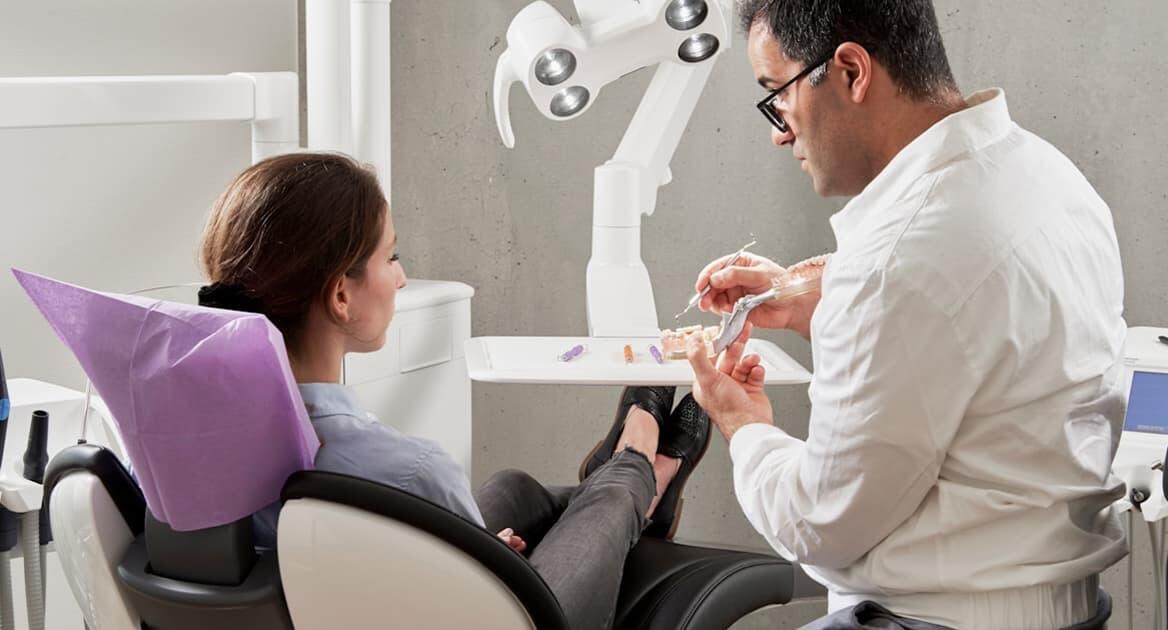Dental implantation in the elderly: who is it suitable for and is it safe?
Tooth loss is a common problem in the elderly. Difficulties with chewing, impaired diction and aesthetic discomfort cause a deterioration in the quality of life. Many people believe that implantation in old age is impossible due to the risk of complications and reduced immunity. However, this is a misconception. Modern dentistry successfully uses implants in patients over 60 and even 80 years old.
Age in itself is not a contraindication. The key factors are general health, the presence of chronic diseases and a sufficient amount of bone tissue.
Who is suitable for implantation in old age
Implantation may be recommended if:
- one, several teeth, or all teeth are missing,
- it is inconvenient to use removable dentures or it is difficult to use them.
- bone tissue allows to fix (install) implants or its correction is possible,
- chronic diseases (diabetes, hypertension) are under control.
Before the procedure, a diagnosis is performed: X-ray, CT scan, blood tests. If necessary, specialized specialists are involved. This allows you to determine the optimal treatment plan and assess the risks.
Features of implantation in the elderly
- Bone tissue: if there is a shortage of volume, bone grafting or the installation of short implants is possible.
- Common diseases: compensated conditions are not an obstacle. It is important to choose a safe tactic in collaboration with a therapist.
- Psychological comfort: implants provide a feeling of "your" teeth, unlike removable structures.
- Minimal injury: gentle techniques are used, navigation surgery according to patterns, often without incisions, with rapid rehabilitation.
Advantages of implantation for elderly patients
- Improved nutrition, diction, and appearance.
- Stability and rigid fixation of the structure — without the need to remove the prosthesis.
- Preventing (significantly slowing down) bone atrophy.
- Aesthetics — modern crowns and dentures on implants imitate natural teeth.
- Increase confidence and comfort in daily life.
The implantation is performed under local anesthesia and does not require long-term recovery. If you follow the doctor's recommendations and monitor your health, the risk of complications is minimal. The level of implant survival in the elderly is comparable to that in young patients, provided proper planning and care.
Implantation in old age is not a risk, but a chance to return to the usual quality of life. Modern techniques make the procedure safe and effective. The main thing is not to delay seeking advice: only a specialist can accurately assess the possibilities and choose the optimal solution. Age is not a limitation, but only a factor that is taken into account in an individual approach to treatment.



